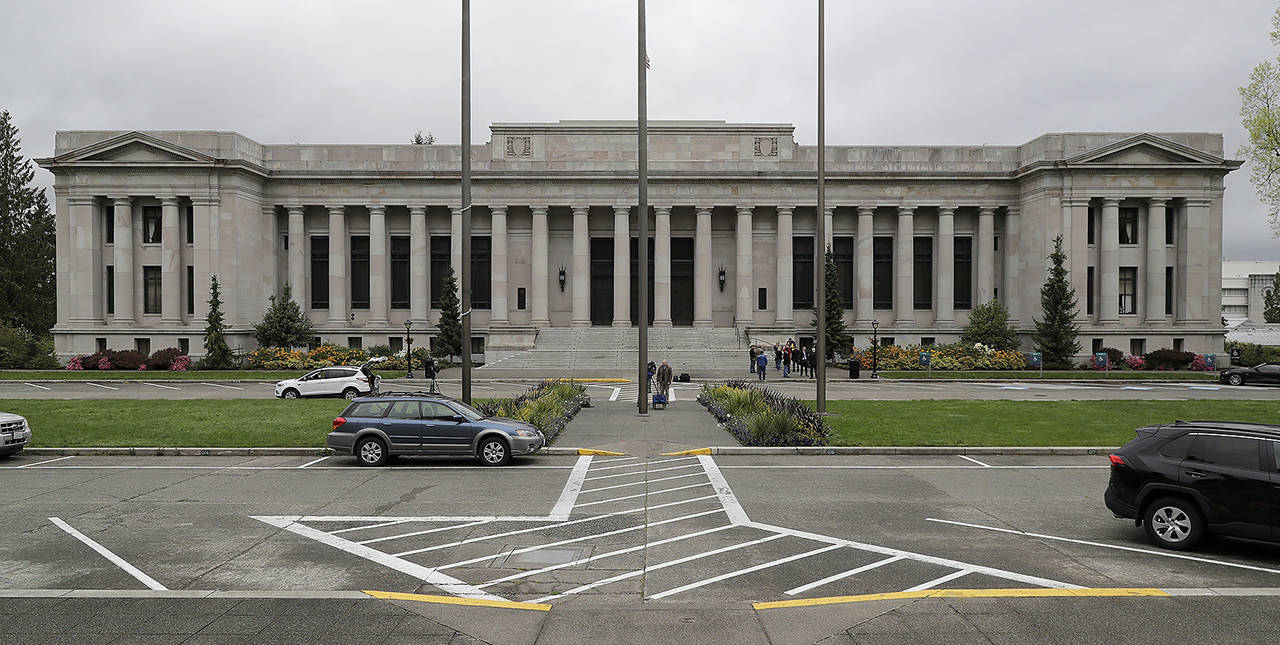By Gene Johnson / Associated Press
SEATTLE — It was unconstitutionally excessive for Seattle to impound a homeless man’s truck and require him to reimburse the city nearly $550 in towing and storage costs, the Washington Supreme Court ruled Thursday. The case has received wide attention amid the region’s housing crisis.
Steven Long was 56, working part time as a janitor and living in his old GMC pickup in 2016 when police had it towed because it was parked in an unused, city-owned, gravel lot for more than 72 hours.
He spent the next three weeks living outdoors, without his tools or his sleeping bag, which were in the vehicle. He had been trying to save for an apartment, but couldn’t work without his tools.
A city magistrate waived his $44 fine for the parking violation, but required Long to reimburse the city for some of the impoundment costs. The magistrate let him retrieve the truck just before it was to be sold at auction and put him on a $50-a-month payment plan.
In a unanimous decision, the court said the truck’s impoundment and the payment plan violated the U.S. Constitution’s ban on excessive fines, set out in the Eighth Amendment. The justices also found that Long’s truck constituted a homestead — and thus he would be entitled to protection from having it sold to pay his debts.
“It is difficult to conceive how Long would be able to save money for an apartment and lift himself out of homelessness while paying the fine and affording the expenses of daily life,” Justice Barbara Madsen wrote.
The court said it did not mean to imply that officials can never impound a vehicle, as cities and counties have an interest in keeping their streets clear. But it noted that “the offense of overstaying one’s welcome in a specific location is not particularly egregious,” and it said officials should inquire about a person’s ability to pay at impoundment hearings.
The case garnered attention from civil liberties groups as well as municipal organizations, including the International Municipal Lawyers Association.
“There is no reasonable or reliable process for municipalities to individually evaluate the owner of each vehicle subject to impoundment to attempt to determine that owner’s ability to pay,” the association wrote in a friend-of-the-court brief. “Moreover, the result would create a means to avoid parking regulations that would essentially allow persons to live, indefinitely, on municipal property with no recourse for the public.”
Seattle argued that while homelessness is an urgent problem, the city must be allowed to enforce its parking laws evenly. It noted that its parking laws are more lenient than those of many other cities.
The 72-hour rule is meant to ensure that people don’t store junked vehicles on public streets, Seattle’s lawyers said. The city has suspended enforcement of the law amid the COVID-19 pandemic and is instead collecting waste from RVs being used as homes.
The city also portrayed Long as obstinate, arguing that while Long claimed the truck was inoperable, he managed to drive it to a friend’s home 20 minutes away after picking it up from the tow company. He could have avoided having it impounded by simply moving it one block away during the week before it was towed, the city said.
But civil liberties organizations, including the American Civil Liberties Union of Washington and the National Homelessness Law Center, described requirements that people move their vehicles from street to street as part of “a long history of unconstitutional policies and practices that have primarily excluded and displaced Black, Indigenous, and other communities of color impacted by poverty.”
Long, who is Native American, was evicted from his apartment in 2014. He had parked his truck in the lot for more than three months.
Talk to us
> Give us your news tips.
> Send us a letter to the editor.
> More Herald contact information.

























